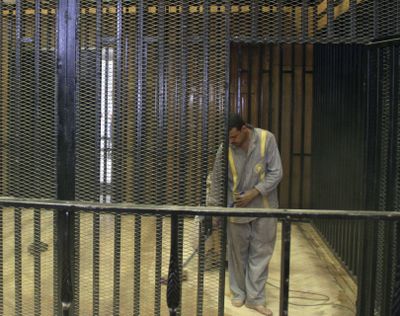Food prices, unrest mar Ramadan start

CAIRO – From Syria to Libya and Egypt, the uprisings and unrest gripping the Arab world have cast a pall on the start of Ramadan, the Muslim holy month when the traditional focus on piety will likely be eclipsed by more unrest.
Food prices – part of the economic hardships that catalyzed the ouster of the Egyptian and Tunisian leaders – are still climbing. And protesters have shown little patience for conciliatory gestures by governments after decades of empty promises.
Predictions of a tense Ramadan have already started to be realized.
Libyan rebels are turning their weapons on each other, dimming hopes for the overthrow of longtime leader Moammar Gadhafi.
In Egypt, Cairo’s Tahrir Square is once again a tent encampment and the joyous celebrations that accompanied Hosni Mubarak’s fall on Feb. 11 have given way to anger and impatience over the slow pace of change.
In response to the pressure from a new round of protests, the judiciary is promising to put Mubarak, his security chief and his two sons on trial this week for a range of charges from corruption to ordering the killing of protesters during the uprising. The hearings are to be carried live on state television, broadcasts that could easily outshine the Ramadan television serials that Egyptians love to watch during the month.
Food prices typically spike during Ramadan, and the extravagant dinners many put on to break the daily fast drive a deep hole in household budgets.
In much of the Arab world, protesters hope the pressure Ramadan places on food prices will inspire more people to challenge their leaders. Jordanian activists say Ramadan inflation could fuel their campaign aimed at wresting greater reforms from King Abdullah II.
Several Arab governments, meanwhile, are trying to ease economic hardship.
In Bahrain, where the ruling Sunni minority has been trying to quash an uprising by the majority Shiites, the king ordered increases in the salaries of civil servants, members of the military and retired government employees.
In nearby Qatar, authorities have ordered reduced prices on 267 types of food and other commodities.